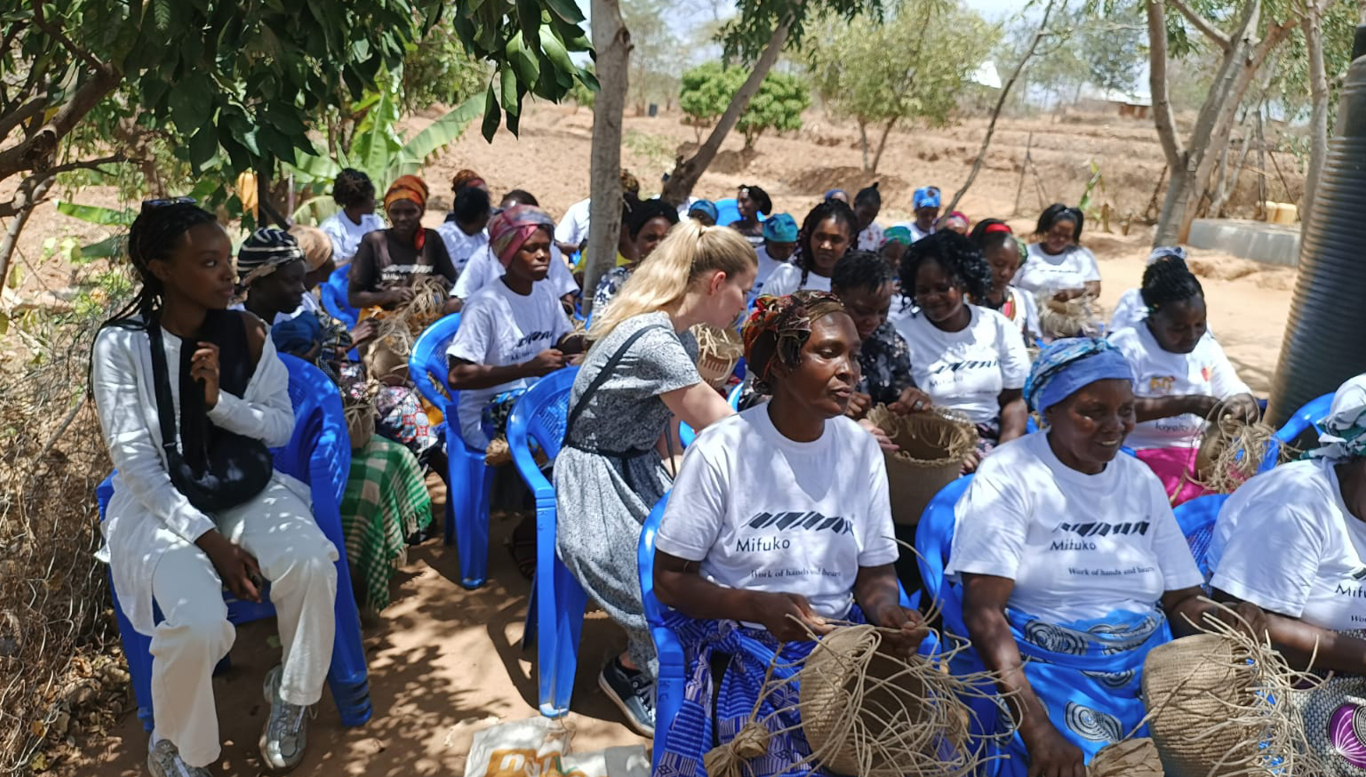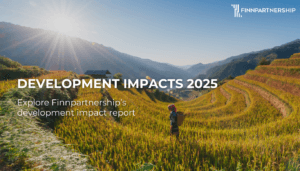Business runs with instant messaging in Africa

Mifuko, which imports design items from Kenya, upped the game with its business operations. New messaging services help business operations between Finland and Africa.
Minna Impiö and Mari Martikainen, both design graduates of the University of Art and Design Helsinki, founded Mifuko Oy in 2009. The business idea was to import design items made by local artisans from Kenya to the Finnish market. The company received support from Finnpartnership in its search for partners and in drawing up a business plan. “Even after the early days, we have received business partnership support, for example, for travel costs and local consultants’ remunerations. That has been very useful when we have developed our business with the local cooperation partners,” Minna Impiö says.
Extra earnings for 300 Kenyan women
In the six years that Mifuko has been operating, the company’s business idea has remained unchanged, but there has been a big change in the products imported from Kenya. “We have left bags and jewellery out of our product range and concentrate now solely on Kiondo baskets.”
Kiondo baskets are traditional Kenyan handicrafts, which are weaved using sisal fibre and colourful plastic. Mifuko’s baskets are produced in Machakos, west from the capital, Nairobi. Mifuko buys the baskets from women’s groups in five villages. All in all, handicrafts provide an extra income for more than 300 women. “They produce these baskets when their other duties allow them. The families’ main livelihood is farming.”
Electronic payments and messages
Mifuko decided to stop stocking bags and jewellery, because maintaining the quality and production level of the completely hand-made products from recycled materials had its challenges. “The Kiondo baskets that the women weave come in different sizes and shapes. That is not a problem because in the design market a clear stamp of handicraft is an advantage,” Impiö remarks. Mifuko pays the women’s groups 50 per cent when the order is made and the other 50 per cent when the order is complete. Payments are transferred in Kenya using the popular M-Pesa mobile payment service.
“Making the payments is really handy because, to receive the payment, all you need is a mobile phone. Women living out in the country no longer need to travel to the city to withdraw the money.”
Smart phones are becoming increasingly common in the Kenyan countryside. According to Impiö, that will improve communication between Finland and Kenya further. She says that she already communicates with them daily, for example, by using the instant messaging service Whatsapp. “Messages and pictures between us help us keep up to date with our orders’ status. We can also react quickly if something is missing or has been incorrectly done.”
Exports to 20 countries
Another major change in Mifuko’s operations has been its expansion to international markets. The company now has stockists from department stores and design chain stores to smaller design shops in more than 20 countries, mainly in Europe. 90 per cent of the products are now sold outside Finland. In Kenya, Mifuko receives help in practical matters from consultants with whom the Finnish company is in close cooperation. An international logistics company transports the products to Finland or directly to the stockists around the world.
The company has an online shop as well, but Impiö and Martikainen intend to continue to concentrate on the stockist network in the future. For a two-person business, running the online shop is too much. According to Impiö, the company mainly finds new customers on international fairs. “Our stands at the fairs are small and humble, but even larger companies have noticed us. The stories behind the products have a growing significance in our marketing.”
Fair Trade Mark a major waypoint
There have been some difficult moments along Mifuko’s six-year journey. The design duo has had to learn about entrepreneurship largely on their own and often the hard way. “However, the most rewarding side of running a business is often those difficult moments. Luckily there are the two of us. One has always cheered us along when the other one has had a bad moment.”
This year, Mifuko became a member of the World Fair Trade Organization as the first Finnish design company. The right to use the Fair Trade mark is significant according to Impiö, because more and more consumers want to buy responsibly produced goods. “Becoming a member of the Fair Trade Organization was a long process, because the company’s operations were thoroughly audited.”
The cooperation with the women’s groups spanning over several years has established a strong link with Kenya. Alongside the company, Impiö and Martikainen have started the Mifuko Trust, which aims to improve Kenyan artisans’ livelihood and quality of life in cooperation with local players.
The Mifuko Trust has, among other things, collected funds for the group of women who make the Kiondo baskets to pay for a cow, a cattle shed and the veterinary expenses. “The milk from the cow gives the women extra income. And when the cow in future has a calf, it will be donated to another women’s group.”
Share on social media


